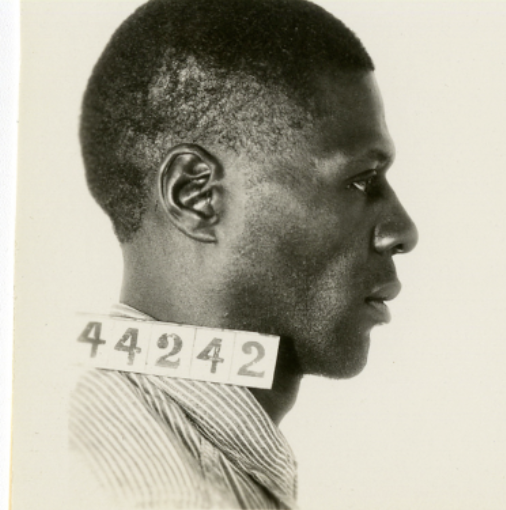PLUS: Black Vaccine Hesitancy Rooted in Mistrust, Doubts
CONTX – Court documents unsealed during the Johnson & Johnson (J&J) talcum powder litigation reveal that the company funded a 1971 study in which Pennsylvania prisoners, most of them African American, were “injected subcutaneously with asbestos.”
Knowledge of the experiments has been public for some time, but J&J’s involvement has only just been recognised, according to Bloomberg.
This news comes after unsealed documents were released in recent J&J lawsuits, which found the company knew for decades that asbestos “lurked in some of its baby powder” products.
According to the U.S. Food and Drug Administration (FDA), the questions surrounding asbestos-contaminated talcum powder “have been raised since the 1970s.” From 1972 to 1975, J&J failed to inform the FDA that at least three tests of their baby powder came back showing “rather high” levels of asbestos.
The company said it “deeply regrets the conditions under which these studies were conducted.” Also adding, “at the time of these studies, nearly 50 years ago, testing of this nature among this cohort set was widely accepted, including by prominent researchers, leading public companies, and the U.S. government itself,” J&J told Fierce Pharma.
PRISON EXPERIMENTS
Funded by entities like Dow Chemical, J&J and the U.S. government, hundreds of prisoners were experimented on by University of Pennsylvania dermatologist Albert Klingman.
Participants were paid anywhere from $10 to $300 to take part in the experiments, said Allen Hornblum, an ex-prison social worker turned journalist.
Knowledge of these experiments became public in 1998, after Mr Hornblum released his book “Acres of Skin,” exposing many experiments conducted over the course of two decades – without formal consent.
Prisoners “receive[d] injections of talcum and of both types of asbestos in their lower backs to study skin reactions,” wrote the BMJ … read more.
Black Vaccine Hesitancy Rooted in Mistrust, Doubts
By Saundra Young, Feb. 2, 2021
Black, Hispanic, and Native American people are about 4 times more likely to be hospitalized and nearly 3 times more likely to die of COVID-19 than white people.
Yet African Americans have nearly the lowest rates of vaccination among any ethnic group.
According to a Kaiser Family Foundation poll, many Black Americans said they don’t plan to get the vaccine, citing fears about safety and concerns that the vaccines are so new.
Wynne Stovall-Johnson is one of them. The 54-year-old mathematics teacher from Elkins Park, PA, is hesitant about getting vaccinated right now. The mother of two says even though her asthma puts her in a high-risk category, it isn’t enough to sway her.
“It’s really an emotional thing. Trust is based on emotions, and I just don’t trust right now,” she says. “I’m educated. I have a graduate degree. I read a lot. I’m informed. I’m not a person who clings on to conspiracy theories, but I simply do not trust the government at this point.”
She says her husband and half of her close friends plan to get it. But the stain of the Tuskegee Study, the Henrietta Lacks case, and other examples of how Black people have been treated, and in many cases still are treated, by the medical community, makes her skeptical.
In the Tuskegee experiments, Black men with syphilis were promised treatment but didn’t receive it. Many of the men died, went blind, or developed other serious health issues. Henrietta Lacks’ cancer cells were used for medical research without her or her family’s knowledge, and without financial compensation … read more.



